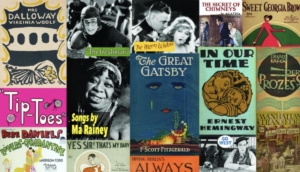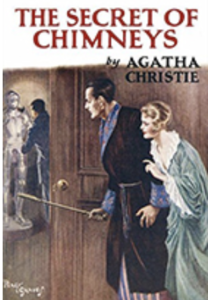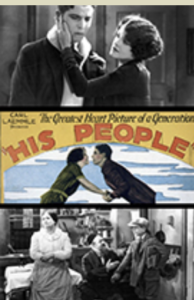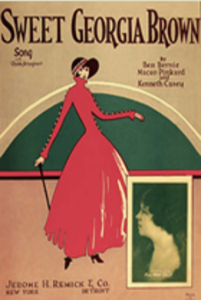Works from 1925 enter the US Public Domain
Every year, on January 1st, previously copywritten works enter the public domain and are free for everyone. 
This blog is an abbreviated version of The Center for the Study of the Public Domain at Duke Law School entry, “January 1, 2021 is Public Domain Day: Works from 1925 are open to all!”
By Jennifer Jenkins, Director of Duke’s Center for the Study of the Public Domain
In 2021, there is a lot to celebrate. 1925 brought us some incredible culture. The Harlem Renaissance was in full swing. The New Yorker magazine was founded. The literature reflected both a booming economy, whose fruits were unevenly distributed, and the lingering upheaval and tragedy of World War I. The culture of the time reflected all of those contradictory tendencies. The BBC’s Culture website suggested that 1925 might be “the greatest year for books ever,” and with good reason. It is not simply the vast array of famous titles. The stylistic innovations produced by books such as Gatsby, or The Trial, or Mrs. Dalloway marked a change in both the tone and the substance of our literary culture, a broadening of the range of possibilities available to writers, while characters such as Jay Gatsby, Hemingway’s Nick Adams, and Clarissa Dalloway still resonate today.
How will people celebrate this trove of cultural material? The Internet Archive will add books, movies, music, and more to its online library. HathiTrust will make tens of thousands of titles from 1925 available in its digital repository. Google Books will offer the full text of books from that year, instead of showing only snippet views or authorized previews. Community theaters can screen the films. Youth orchestras can afford to publicly perform, or rearrange, the music. Educators and historians can share the full cultural record. Creators can legally build on the past—reimagining the books, making them into films, adapting the songs.
Here are some of the works that will be entering the public domain in 2021. (To find more material from 1925, you can visit the Catalogue of Copyright Entries.)
Books
- F. Scott Fitzgerald, The Great Gatsby
- Virginia Woolf, Mrs. Dalloway
- Ernest Hemingway, In Our Time
- Theodore Dreiser, An American Tragedy
- John Dos Passos, Manhattan Transfer
- Alain Locke, The New Negro (collecting works from writers including W.E.B. du Bois, Countee Cullen, Langston Hughes, Zora Neale Hurston, Claude McKay, Jean Toomer, and Eric Walrond)
- Sinclair Lewis, Arrowsmith
- Agatha Christie, The Secret of Chimneys
- Aldous Huxley, Those Barren Leaves
- W. Somerset Maugham, The Painted Veil
- Dorothy Scarborough, On the Trail of Negro Folk-Songs
- Edith Wharton, The Writing of Fiction
- Etsu Inagaki Sugimoto, A Daughter of the Samurai
Films
- Harold Lloyd’s The Freshman
- The Merry Widow
- Stella Dallas
- Buster Keaton’s Go West
- His People
- Lovers in Quarantine*
- Pretty Ladies
- The Unholy Three
(*Yes, there was a film called Lovers in Quarantine, though it was a comedy, and they only had to quarantine for a week.)
Music
- Always, by Irving Berlin
- Sweet Georgia Brown, by Ben Bernie, Maceo Pinkard & Kenneth Casey
- Works by Gertrude ‘Ma’ Rainey, the “Mother of the Blues,” including Army Camp Harmony Blues (with Hooks Tilford) and Shave ’Em Dry (with William Jackson)
- Looking for a Boy, by George & Ira Gershwin (from the musical Tip-Toes)
- Manhattan, by Lorenz Hart & Richard Rodgers
- Ukulele Lady, by Gus Kahn & Richard Whiting
- Yes Sir, That’s My Baby, by Gus Kahn & Walter Donaldson
- Works by ‘Jelly Roll’ Morton, including Shreveport Stomps and Milenberg Joys (with Paul Mares, Walter Melrose, & Leon Roppolo)
- Works by W.C. Handy, including Friendless Blues (with Mercedes Gilbert), Bright Star of Hope (with Lillian A. Thorsten), and When the Black Man Has a Nation of His Own (with J.M. Miller)
- Works by Duke Ellington, including Jig Walk and With You (both with Joseph “Jo” Trent)
- Works by ‘Fats’ Waller, including Anybody Here Want To Try My Cabbage (with Andrea “Andy” Razaf), Ball and Chain Blues (with Andrea “Andy” Razaf), and Campmeetin’ Stomp
- Works by Bessie Smith, the “Empress of the Blues,” including Dixie Flyer Blues, Tired of Voting Blues, and Telephone Blues
- Works by Lovie Austin, including Back Biting Woman’s Blues, Southern Woman’s Blues, and Tennessee Blues
- Works by Sidney Bechet, including Waltz of Love (with Spencer Williams), Naggin’ at Me (with Rousseau Simmons), and Dreams of To-morrow (with Rousseau Simmons)
- Works by Fletcher Henderson, including Screaming the Blues (with Fay Barnes)
- Works by Sippie Wallace, including Can Anybody Take Sweet Mama’s Place (with Clarence Williams)
- Works by Mrs. H.H.A. (Amy) Beach, including Lord of the Worlds Above, Op. 109 (words by Isaac Watts, 1674–1748), The Greenwood, Op. 110 (words by William Lisle Bowles, 1762–1850), The Singer, Op. 117 (words by Muna Lee, 1895–1965), and Song in the Hills, Op. 117, No. 3 (words by Muna Lee, 1895–1965)
Public Domain Day 2021 by Duke Law School’s Center for the Study of the Public Domain is licensed under a Creative Commons Attribution-ShareAlike 3.0 Unported License.




